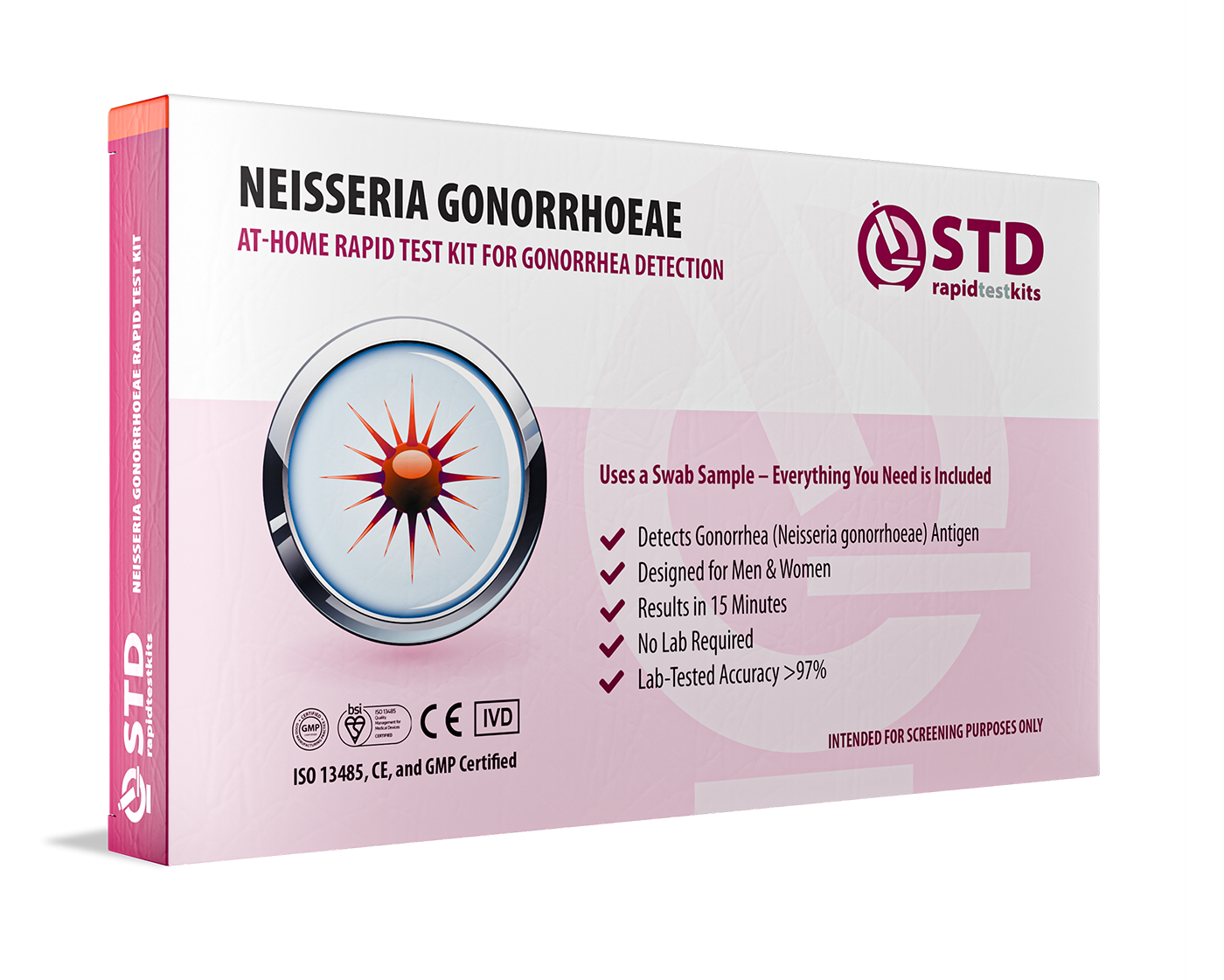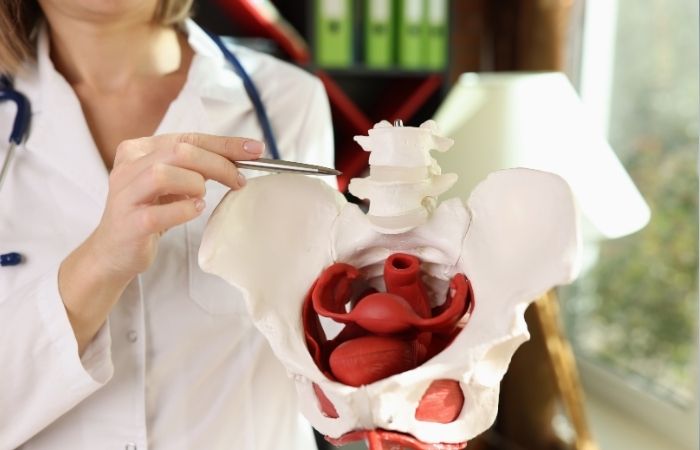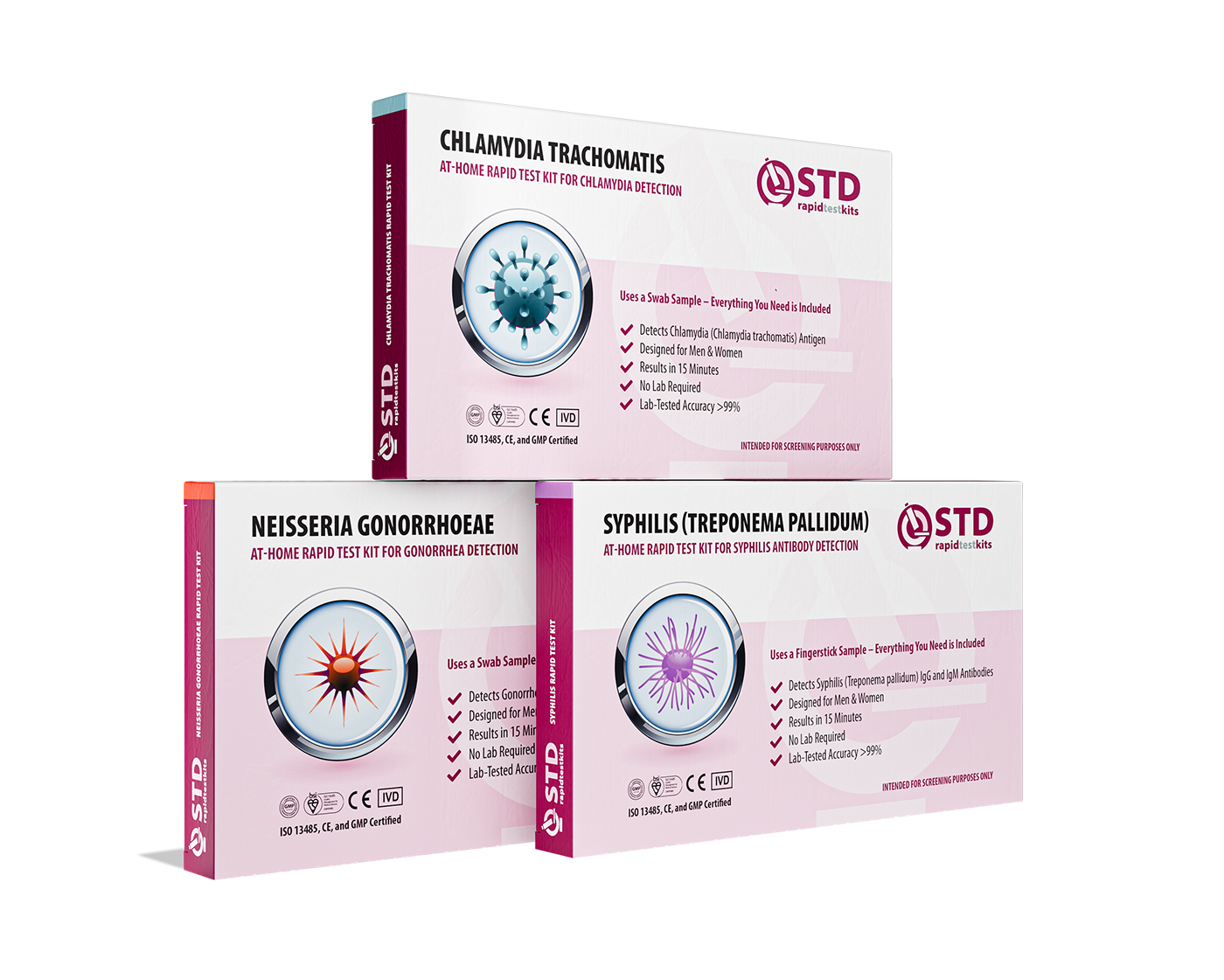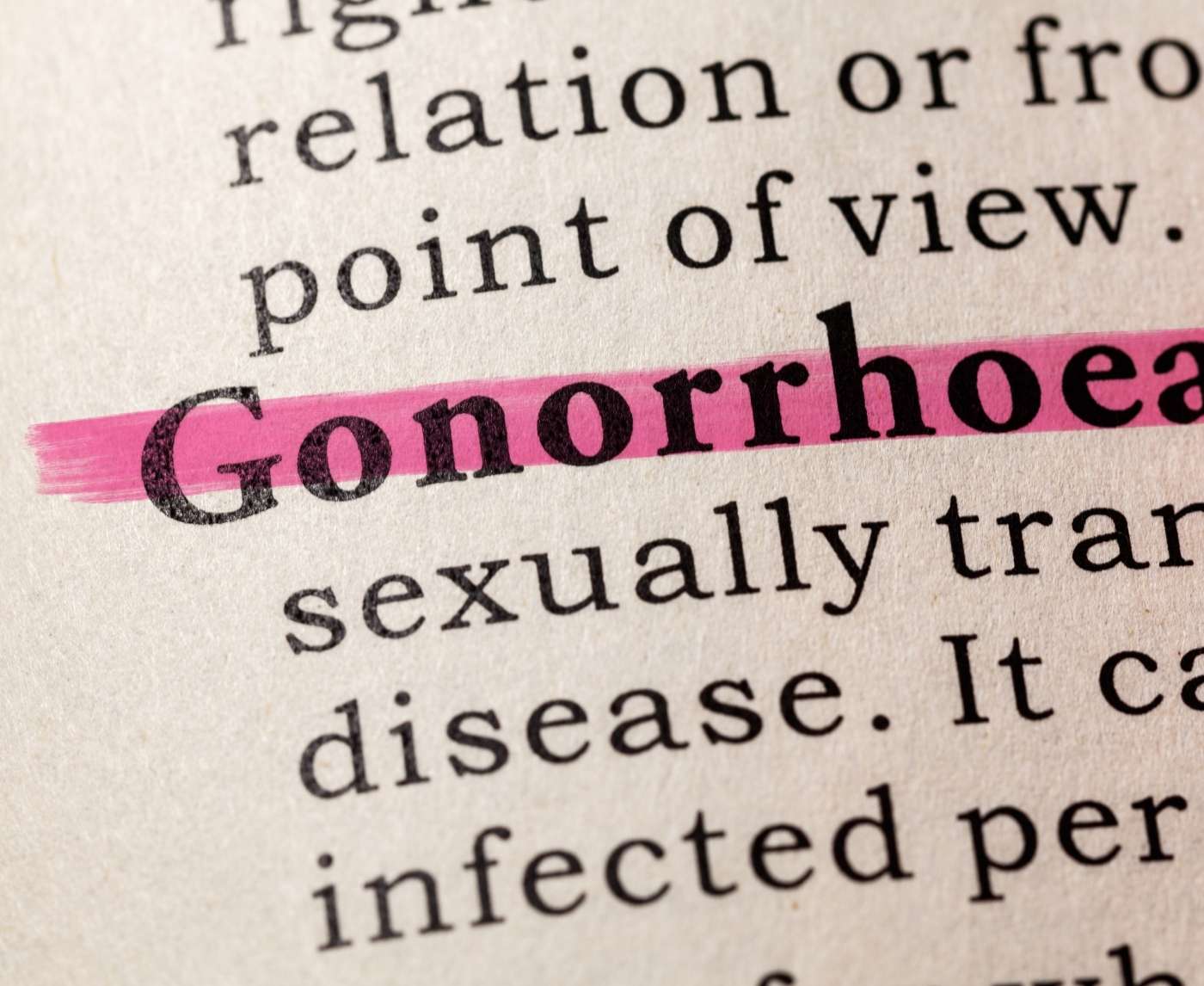The Evolution of STD Testing: How Rapid Testing Leads the Way
Gonorrhea: What Is It and Why Is It Important?
Caused by the bacterium Neisseria Gonorrhoeae, gonorrhea is an infection of the reproductive tract, throat, rectum, and eyes. It usually affects the cervix, uterus, and fallopian tubes in women. While medications are available that can cure gonorrhea, the infection is often asymptomatic and thus usually undiagnosed.

What are the Risks of Gonorrhea?
If left untreated, gonorrhea can disseminate to other parts of the body. This can lead to complications such as ectopic pregnancies, chronic pelvic pain, and permanent damage to the reproductive organs in women. The physical consequences also extend to the emotional and social effects on the individual.
Pathophysiology of PID in Untreated Gonorrhea
What is PID?
Pelvic inflammatory disease is a serious infection. Besides being an infection of the uterus, the fallopian tubes and ovaries also get affected. Most instances have occurred because the gonorrhea or chlamydia went untreated. The bacteria causing PID work their way up into the upper reproductive system from the lower genital tract.
A Gonorrhea's Role in PID Development
The risks of PID are substantially enhanced in the case of untreated gonorrhea. In this way:
- The ascent of Organisms: The organisms causing gonorrhea ascend into the reproductive system via the cervix.
- Inflammation and Scarring: The infection thus results in inflammation and causes scarring and adhesions within the reproductive system.
- Blocked Fallopian Tubes: Scarring can block or damage the fallopian tubes, increasing the risks of infertility and ectopic pregnancies.
Order Now $33.99 $49.00 Check Your STD Status in Minutes
Test at Home with Remedium
Gonorrhea Test Kit




Symptoms of Post-Trauma Degeneration
Some symptoms that women with PID might look like:
- Tenderness of the lower abdomen
- Abnormal vaginal discharge
- Painful sexual experience
- Signs of irregular periods
- Flu symptoms
Early diagnosis is essential to prevent the long-term consequences of PID.
Infertility: A Painful Consequence of PID
PID as a Cause of Infertility
Pelvic inflammatory disease is one of the main reasons for not conceiving in women. It makes the fallopian tubes damaged, thereby preventing eggs from fertilizing in the uterus. Some of the important processes involve:
- Scar Tissue: The scar tissues from PCOS clog the fallopian tubes and do not let conception occur.
- Risk of Ectopic Pregnancy: Fertilized eggs may implant outside the uterus when there is scar tissue, and it can result in fatal outcomes.
- Ovarian Infections: Serious ovarian infections from PIDS significantly reduce fertility.
Results on Fertility from PID Statistics
- Poisoning can occur in as many as 10% of women who have untreated gonorrhea.
- Twenty percent of people with PID experience infertility.
- Thousands of women experience infertility due to PID every year, thus the importance of early diagnosis and treatment.

Problems in Gonorrhea Diagnosis and Treatment
Gonorrhea Is Commonly Misunderstood: Why?
The infection is hard to detect as most of the women infected with gonorrhea do not show any symptoms. Symptoms that may appear could be:
- Inability to Urinate
- High discharge from the vagina
- Bleeding between periods
The symptoms are often mistaken for other less serious diseases which leads to delayed treatment.
Reasons People Do Not Seek Medical Attention
- Shame: Most of the women do not get themselves checked out because they fear judgment.
- Lack of Awareness: Many are unaware that gonorrhea may lead to long-term consequences.
- Reduced Access: Timely detection and treatment become increasingly challenging when access to health facilities is limited.

Guidelines for the Practical Prevention of PID and Infertility
Ongoing Screening for Sexually Transmitted Infections
The most effective way to detect gonorrhea in its early stages and prevent complications is through regular testing. All women have to do is:
- Undergo a sexual health checkup every year.
- If you experience symptoms of an STI, get tested immediately.
- Consider an at-home STD test kit for convenience and confidentiality.
Effective Treatment
- If taken early, antibiotics can clear up gonorrhea and prevent it from progressing to PID.
- To be completely cured of an infection, it is crucial that you complete the full treatment as prescribed.
Correct Sexual Practice
- Use condoms correctly and every time
- Reduce the number of sexual partners.
- Talk openly with partners about getting tested for STIs.
Treatment and Partner Notification
- Notify all sexual partners of a diagnosis of gonorrhea for re-infection prevention as this will enable them to get tested and treated, too.

Reasons Why Home STD Testing Is Necessary
Because they can be given in the privacy of one's own home, at-home STD test kits are changing the face of sexual health. With one of these kits, a woman can:
- Conduct a discrete test from the privacy of her own home.
- Quickly receive accurate results.
- Be confident in decisions regarding their reproductive health.
Help reduce undiagnosed and untreated gonorrhea and its complications with at-home kits that overcome many barriers to testing.
Data Analysis: A Bigger Picture
The Global Burden of Gonorrhea
- The World Health Organization estimates 82 million new cases of gonorrhea are diagnosed annually worldwide.
- Prevention efforts need to focus on the ages of 15–24-year-old women since they are the highest risk age group.
Economic Burden
- Medical costs of infertility treatments and hospitalization related to untreated gonorrhea and PID pose a significant economic burden.
- Early detection and treatment saves lives, and reduces costly burden.
Professional Views and Real-Life Examples
Expert Opinion
As stated by a well-known gynecologist, Dr. Emily Carter, regular testing and timely treatment of STDs is the only way to escape from the after-effects of gonorrhea. She says, "Women should not neglect their reproductive health in order to prevent infertility and PID."
Story to Tell: A Tale to Warn Others
Maria is a 29-year-old female patient who for several months remained untreated with her gonorrhea infection. Her symptoms were considered moderate. At the time of seeking treatment, she already had severe PID. Although surgery repaired her fallopian tubes, Maria was experiencing difficulties conceiving. Early intervention in such cases is paramount.

Views on Gonorrhea and Their Historical Development
By the early 1900s, gonorrhea had few alternatives for treatment and was widely stigmatized. The mid-1900 introduction to antibiotics changed the face of healthcare and greatly decreased the occurrence of problems such as PID. These days, there are efforts to raise awareness and use new technology, such as at-home testing, to lessen its effects even more.
Emerging Treatments for Gonorrhea: A Look Into the Future
- New medicines are in the process of being developed that combat the resistance of medicines developed for gonorrhea strains.
- A vaccine currently under development may prevent a disease caused by Neisseria gonorrhoeae bacteria.
Refreshing Approaches to Testing
- Rapid diagnostic testing has made detection of gonorrhea easier in resource-poor settings.
- Diagnosis of sexually transmitted diseases is getting more accurate with the help of AI-powered tools.
Social Conscience for Women Empowerment
Being aware of the complications of untreated gonorrhea is one way to protect themselves from the consequences of the infection. This can be done by the following:
- Advocating regular STI testing
- Encouraging people in their communities to discuss their sexual health openly.
Order Now $69.00 $147.00 Check Your STD Status in Minutes
Test at Home with Remedium
3-in-1 STD Test Kit




For all 3 tests
FAQs
1.- Can I still become infertile if I have gonorrhea?
Yes, even asymptomatic gonorrhea can cause PID and infertility if left untreated.
2.- What are the signs and symptoms of gonorrhea?
The only sure way to know for sure if one has symptoms-which might include abnormal discharge, painful urination, or bleeding between periods-is to get tested.
3.- Can damage from PID be reversed?
Though symptoms can be managed with early treatment, the fact is that damage to reproductive organs could be permanent.
4.- What is the recommended frequency of gonorrhea tests?
Sexually active women, especially those with more than one partner, should get tested at least once a year.
5.- Do home STD test kits really work?
They are a convenient option for many, and when used correctly, they produce trustworthy results.
6.- How dangerous is it for a pregnant woman to have untreated gonorrhea?
Untreated gonorrhea may cause babies to be born prematurely, with a low birth weight, or infected.
7.- Can gonorrhea cause PID in men?
Untreated gonorrhea can cause epididymitis, an infection of the testicles, in men, but men cannot get PID.
8.- How long after gonorrhea do symptoms of PID appear?
If gonorrhea is left untreated, PID can develop in a matter of days or weeks.
9.- What do I do if my partner refuses to be tested?
While waiting for testing and treatment of both partners, open discussion is encouraged as well as consideration of protection.
10.- If treated, can gonorrhea recur?
Yes. You can reinfect yourself if again exposed. To prevent this from happening again, you will need to do tests on a regular basis and practice safe procedures.
Taking Care of Your Fertility Yourself
The worst consequences of the untreated disease are chronic infection, PID, and the inability to conceive. These complications are, however, avoidable if one goes for regular testing and timely treatment besides practicing in a safe manner. If you are looking for a discreet, convenient, and accurate way to monitor your sexual health, you might want to check out our at-home STD testing kits.
Sources
1.- How Untreated STDs Can Affect Fertility - STD Rapid Test Kits Blog
2.- The Dangers of Untreated STDs: Consequences and Risks - EHG Health
3.- Gonorrhoea Fact Sheet - World Health Organization
4.- Gonorrhea and Infertility - CDC Archives










